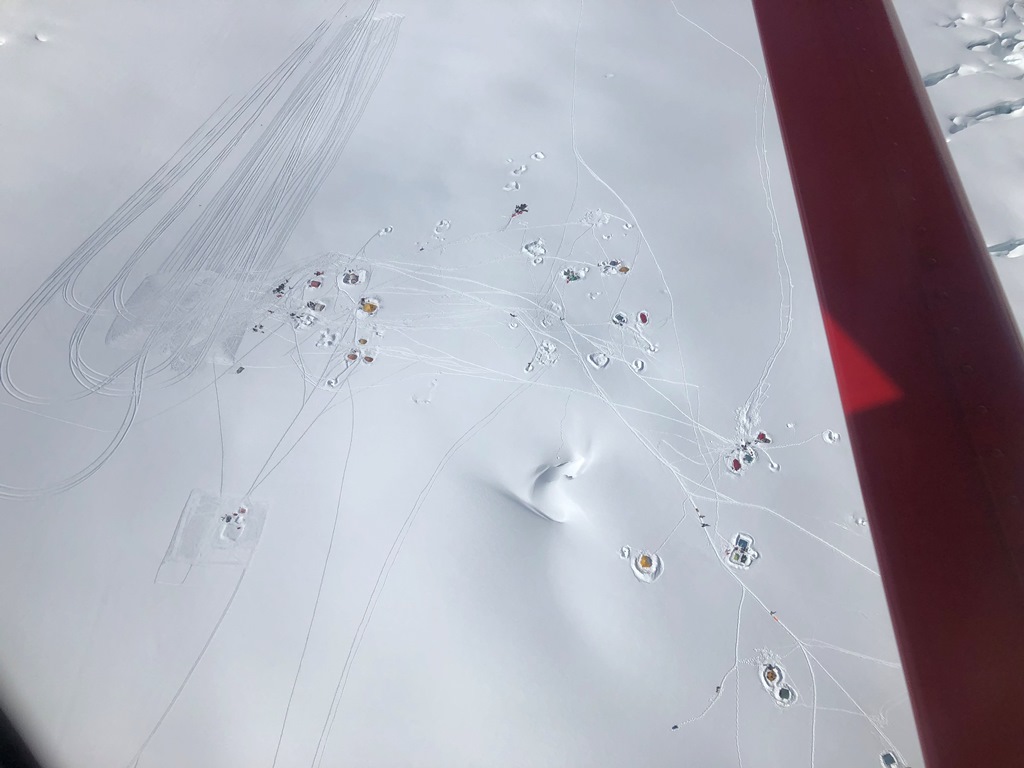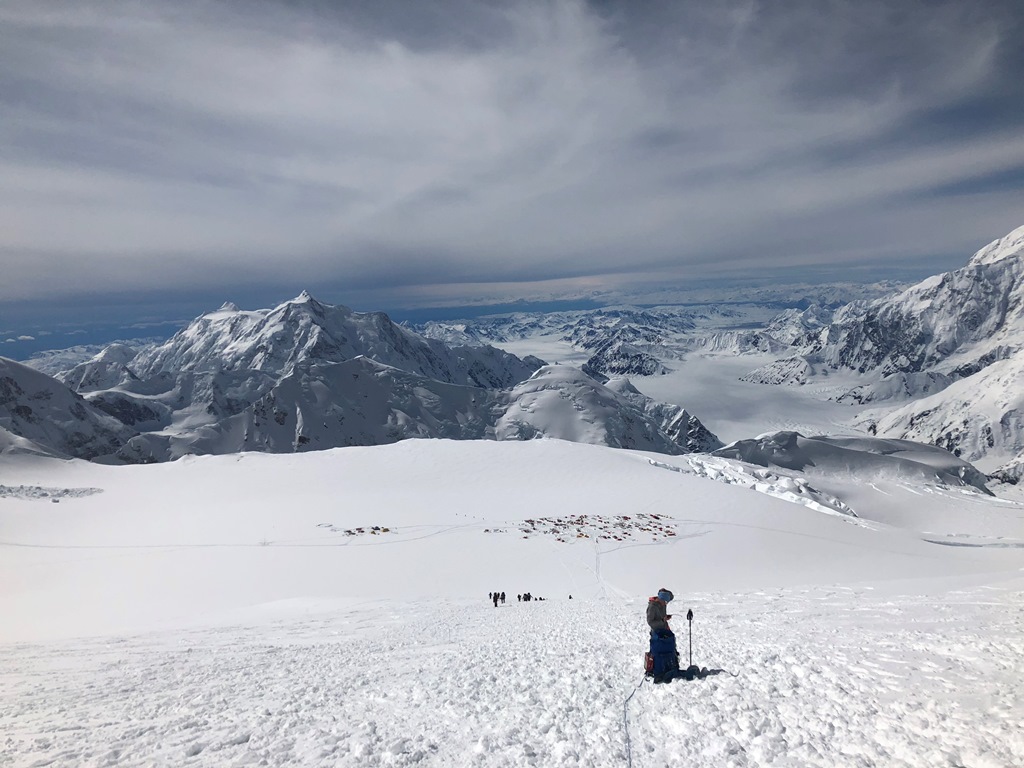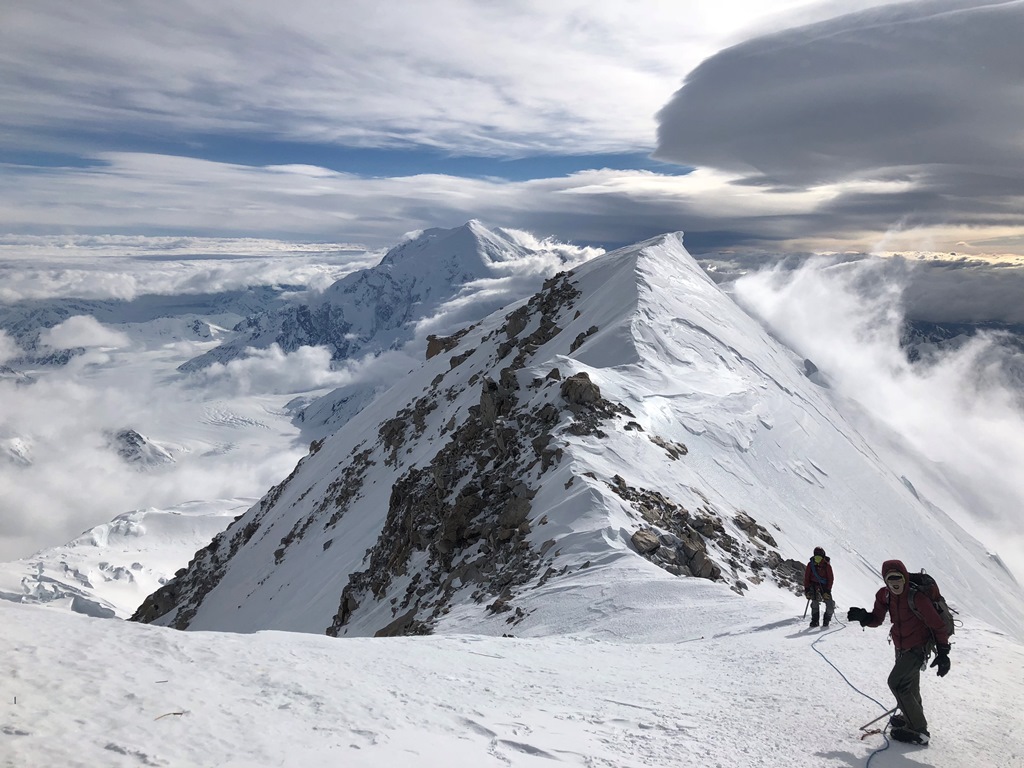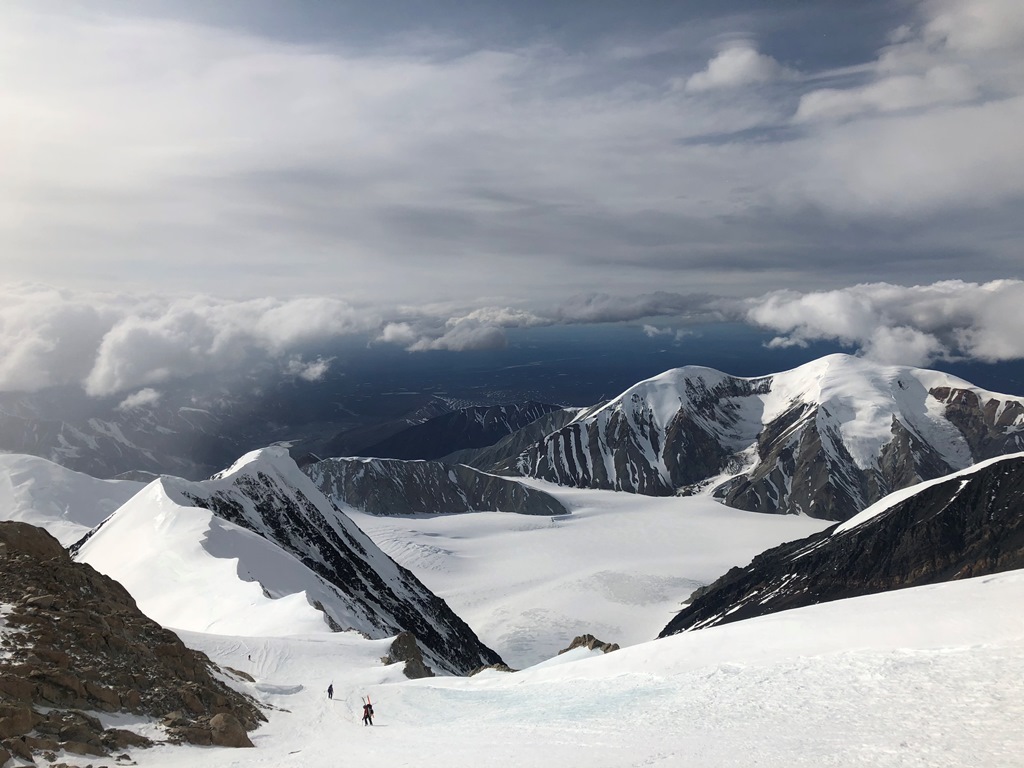A Volunteer's Perspective
by Hannah Trim, Denali mountaineering volunteer“Hello?” I rolled over in my sleeping bag.
“Hello?” I heard the tent fabric shaking in someone’s hand above me. It’s a little awkward to knock on a tent door, it turns out.
“I’m looking for the physician,” Suddenly my brain flooded out of dreamland. It was two o’clock in the morning and someone needed help. Luckily, all my groggy brain had to do was recognize that the doctor was in fact my tent mate and wake him up. I struggled through the zillion layers lining my sleeping bag, fumbled with the frost-coated zipper and started poking Charlie, our Family Practice Doctor volunteer.
“Charlie… Charlie, wake up. Someone’s looking for you,”
For the next few hours, our team got a crash course in emergency medicine at high altitude. Though we’ve each tackled emergencies in other wilderness settings, it was a good reminder of how tenuous human life can be, clinging to the side of a snow-covered mountain. Simple tasks required forethought, things that automatically happen in a hospital took way more work. Charlie scribed medical notes with a summit mitten on one hand, alternating time in and out of his pocket with the other. It took us an hour and a half to thaw and warm one measly liter of IV fluid. And perhaps most sobering of all, it took all five members of our team to support one patient for just a few hours before they could be flown to a hospital.
This patrol was my first experience on Denali and the thing that struck me the most was the perspective. First off, the mountain is enormous. When we flew into basecamp, I craned my neck against the window, ogling at the tiny dots of red and orange and blue tents sprinkled across the glacier. For all the things that humans have done, we really are quite small in the grand scheme of things.

View of Basecamp from the air. (Photo courtesy of VIP Hannah Trim)
Later that day, we moved up to 7,800’ Camp as a foggy layer of clouds rolled in, silently enveloping the Lower Kahiltna in a giant cotton ball. We listened to avalanches mutedly thundering down the high peaks far around us, unable to see them. And again, I was impressed by the scale. Later, at 14 Camp, we ran out of the tents at the sound of a serac fall below the West Rib and watched massive ice blocks the size of small cars peel off the face and tumble down, triggering a small avalanche along with it.
It felt pretty primal, watching natural acts of power as we moved up the mountain. They certainly reminded us of our place among things. And yet, as we moved higher, to 16 Ridge and 17 Camp, the debris from the serac fall got tinier, and looked increasingly insignificant, almost blending in with the colorful tent sprinkles. And the avalanches from earlier were miles below us, now invisible to our experience.

The view of 14 camp from below the fixed lines. (Photo courtesy of VIP Hannah Trim)
Each climb put our previous landmarks further and further behind us. Each little spot that we had become so intimately familiar with eventually turned to a smudge on the panorama. And the breathing got harder too. I could feel my heart beat lying in the tent at 17 Camp, nearly racing just to pump red blood cells from my lungs to my heart and back. And I could hear other climbers coughing—and worse—in the tents around us.
We spent a lot of time talking about the ‘why?’ Why do we come up here? Why do humans choose to suffer in the cold snow where our great stove and tent technologies sometimes only barely work well enough to keep us alive? What’s the fun in that? Why do we as volunteers feel compelled to go help people up there?

Fellow volunteers Sam and Anitra descending to the fixed lines. (Photo courtesy of VIP Hannah Trim)
I’ll probably never have a perfect answer, and so I’ll probably always keep climbing up things wondering and trying to figure it out. But that sense of scale, the reminder that I am so small on the side of this enormous peak, is a huge draw. I think it reminds us that we’re not all-powerful and that there are consequences to our actions. In an era of smart phones and virtual reality, it reminds us to actually sit down and talk to one another, to share meals and sip slowly, and sing to the music even if we’re not musically-inclined. It reminds us that sometimes we just have to try really, really hard…and get lucky. Sometimes we have to ask the people around us for help. Sometimes we have to go wake up strangers in their tents in the middle of the night to get that help.
And I think most of the people I met on Denali would agree that this ‘perspective’ is incredibly refreshing. We turned around somewhere near 19,000’ on our summit attempt to go help an exhausted solo climber, which quite frankly felt much better than continuing to the summit. It was cold, windy, and so hard for me to breathe. I very quickly remembered that “climbing” at high altitude mostly means a suffer-fest of forcing one foot in front of the other. I found myself saying out loud that “I’m so grateful that there are still places on earth that thwart humans”. And I still am. I’m so thankful there are still mountains that put us in our place, keep our realities in check, and sometimes allow us to sneak by and tag their summits.

Our descent to 11 camp. (Photo courtesy of VIP Hannah Trim)
